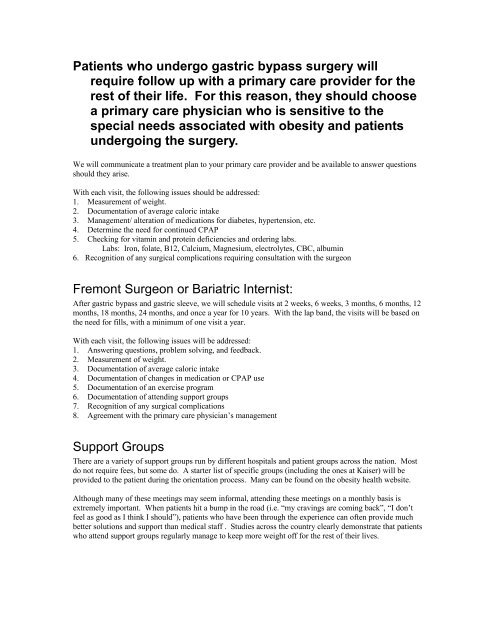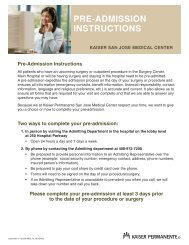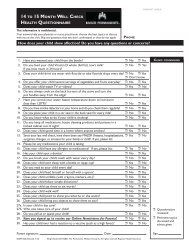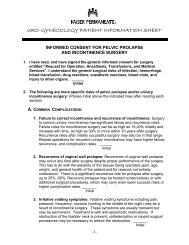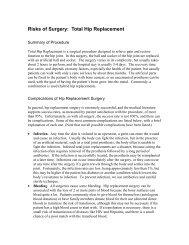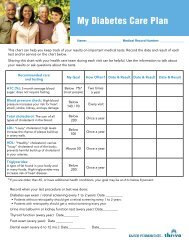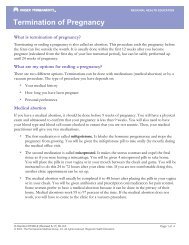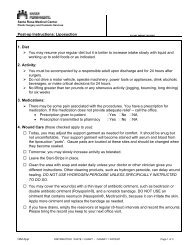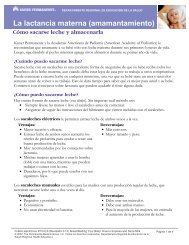Patient Information Book For Gastric Bypass Surgery - permanente.net
Patient Information Book For Gastric Bypass Surgery - permanente.net
Patient Information Book For Gastric Bypass Surgery - permanente.net
You also want an ePaper? Increase the reach of your titles
YUMPU automatically turns print PDFs into web optimized ePapers that Google loves.
<strong>Patient</strong>s who undergo gastric bypass surgery will<br />
require follow up with a primary care provider for the<br />
rest of their life. <strong>For</strong> this reason, they should choose<br />
a primary care physician who is sensitive to the<br />
special needs associated with obesity and patients<br />
undergoing the surgery.<br />
We will communicate a treatment plan to your primary care provider and be available to answer questions<br />
should they arise.<br />
With each visit, the following issues should be addressed:<br />
1. Measurement of weight.<br />
2. Documentation of average caloric intake<br />
3. Management/ alteration of medications for diabetes, hypertension, etc.<br />
4. Determine the need for continued CPAP<br />
5. Checking for vitamin and protein deficiencies and ordering labs.<br />
Labs: Iron, folate, B12, Calcium, Magnesium, electrolytes, CBC, albumin<br />
6. Recognition of any surgical complications requiring consultation with the surgeon<br />
Fremont Surgeon or Bariatric Internist:<br />
After gastric bypass and gastric sleeve, we will schedule visits at 2 weeks, 6 weeks, 3 months, 6 months, 12<br />
months, 18 months, 24 months, and once a year for 10 years. With the lap band, the visits will be based on<br />
the need for fills, with a minimum of one visit a year.<br />
With each visit, the following issues will be addressed:<br />
1. Answering questions, problem solving, and feedback.<br />
2. Measurement of weight.<br />
3. Documentation of average caloric intake<br />
4. Documentation of changes in medication or CPAP use<br />
5. Documentation of an exercise program<br />
6. Documentation of attending support groups<br />
7. Recognition of any surgical complications<br />
8. Agreement with the primary care physician’s management<br />
Support Groups<br />
There are a variety of support groups run by different hospitals and patient groups across the nation. Most<br />
do not require fees, but some do. A starter list of specific groups (including the ones at Kaiser) will be<br />
provided to the patient during the orientation process. Many can be found on the obesity health website.<br />
Although many of these meetings may seem informal, attending these meetings on a monthly basis is<br />
extremely important. When patients hit a bump in the road (i.e. “my cravings are coming back”, “I don’t<br />
feel as good as I think I should”), patients who have been through the experience can often provide much<br />
better solutions and support than medical staff . Studies across the country clearly demonstrate that patients<br />
who attend support groups regularly manage to keep more weight off for the rest of their lives.


